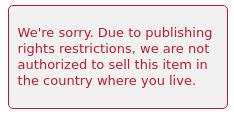
Recently I have been trying out a pretty old phenomena by now that is called “audio books”. Well, what is it actually? It literally is just how it is called. These are audio records where someone is reading the book that you are interested in. It mostly took off after Apple released the iPod and now it is available everywhere because high-speed internet connections are attainable by the general public and services exist like Audible where you can purchase audio books and download them easily. Obviously, they let you get the same content from books that you would otherwise get by reading but it has some downsides as well. Well… what are they? I will present my own point of view after finishing almost two books in approximately 24 hours of listening.
Audio books are really not like real books
If you started listening to audio books and expected them to be just like books – you are wrong. It IS a different format just like watching plays in a theatre are different from reading the actual plays and imaging it all yourself. The narrator adds its own spin to the content and you do not have the same relationship with the book when you are reading it yourself. The narrator is between you and the book. This has negative and positive consequences. For example, you have to deal with the fact that sometimes the narrator might not add the emphasis where you would want to or the words will be pronounced poorly and you will not be able to understand what is being said. It is not so easy to add a bookmark whenever you mishear a word and come back later to it. Whereas when you are reading a physical book, you can instantly see the word. Applications like Audible are trying to make this easier but still it is tedious to go back and listen to it again, try to understand what is being said. On the other hand, it frees your eyes from actually reading the books and you can focus on other things while ingesting the book content.
Audio books are perfect for times when you are doing brainless work
During the course of the day, there is a lot of periods when you are doing some physical work that requires no brain activity. Some of the examples include doing house chores or running outside. I have found that listening to audio books during these moments was the best thing because your brain is completely free and you could focus on understanding the speech and what the author is saying. That also means that you will be engaging your brain while doing those things so you will become smarter whereas, for example, listening to music will make your brain number and will give you no positive effect.
Also, this means that you will be able to read much more books than usual. I commute 2~ hours every day so that means that I could easily get through a book every week. Now that laudable 1 book a week goal does not look so scary, does it?
Audio books tend to cost more
Unfortunately but audio books usually are pricier because not only you have to pay the person who wrote the actual book but you need to pay the people who made the audio version as well. And it usually consists of a lot of people: the narrator, audio engineer, person who mastered the audio, not to mention the cost for renting a studio with audio equipment and so on. Even though sites like Audible help with driving the costs down with its credit system but it is still not enough. Logically it is just not possible to make the audio books cheaper than the printed books only because there is more people and things involved in making it.
Audible is restricted geographically
It is really sad that in 2017 we still have this thing. I have tried to buy the audio book version of the book “Freakonomics” but it is and still is unavailable in Lithuania. Audible just shows this notice:

I mean come on… it is just an audio book. I could buy and read the actual book. It was even actually translated into Lithuanian. But the audio version? Nope. I do not know what is in the publisher’s minds but I hope this will get fixed soon.
Overall thoughts
At first it was very to get accustomed to actually listening to someone else read the book for you. In these 24 hours it got significantly easier, my listening skills improved drastically, and now I can actually increase the audio playback speed to 1.5x. The statistics and achievements tabs in the Audible app give me something to boast about and, even though it is not very good, it gamifies the listening process. I think that in the next 24 hours my listening skills will improve even more and I will get addicted to listening to books. Let’s see what the future holds.